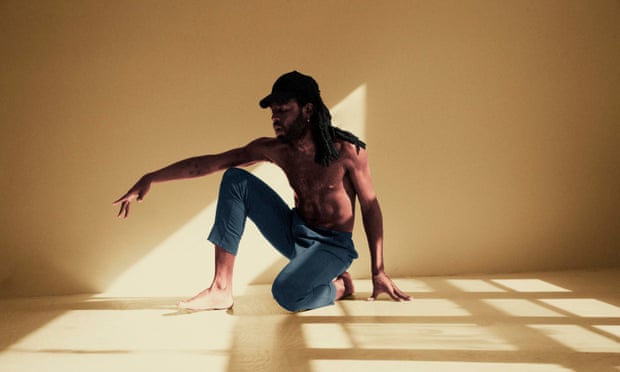The blues, a genre born from songs sung on slave ships to release pain and spark hope, is one
Over the past couple of years, a new strain of hip hop has incorporated jazz and taken on embedded that history. As a mainstream genre, that fusion is now recognised as the sound of resistance. The first artist to come to mind of its use in this particular way is D’Angelo - his Black Messiah embodied the swagger of jazz throughout with a sea of fists on the seen on the sleeve to secure its meaning as a political album.
Kendrick Lamar followed with the groundbreaking, To Pimp a Butterfly in 2015. Opening with the mantra ‘Every nigger is a star’ before strutting into For Free where Lamar’s quick talk, harmonising horns and walking double bass transported the listener to a 1920s smoky piano bar. Fusing upbeat jazz with swiftly delivered bars early on in the album, resulted in hip hop, jazz and black politics becoming inexplicably linked.
By opening Freetown Sound with hauntingly jazzy chords from the beginning, Blood Orange, perhaps subconsciously references there recent works. Which is not to take away from the mark he himself has made on this concept. The first song quickly moves into what I’d describe as gospel music; another facet of black music not often heard in the UK. Whenever I’ve heard this type of sound, personally, it has been used as a soundtrack for pain and remorse. Dissecting the words of the song, ‘They took and skinned my name. Try to raise the feeling. I saw right through, tried to love them.They threw it in your face, tell you what you're feeling.”
Who are those words speaking about? Are they being spoken by a black man, as a first hand description of how it feels growing up in a society that sees you as less than others, despite your efforts to bridge that gap? Or are they being spoken by a young boy, picked on at school in East London?
Blood Orange, real name Dev Hynes, was born in Ilford, London and has spoken about the unhappier parts of his childhood where kids from the black community would target him. Ostracisation at a young age may be identifiable to those who feel segregated from society because of the colour of their skin.
When Ashlee Haze’s spoken word breaks through, this theme of ostracisation develops into the struggles that can come when attempting to form an identity; especially when those that look like you are rarely seen in positive roles. Haze speaks: ‘If you ask me why representation is important… I will tell you that right now there are a million black girls just waiting, to see someone who looks like them.’ This theme of representation and the necessity in being able to connect with visions of yourself elevating in society rather than being pulled down, is one the recurred in the album.
Augustine mentions Trayvon Martin early on; a 17 year old from Miami who was fatally shot by a white man on neighbourhood watch who mistook him for a criminal due to the hoodie he was wearing. By referencing the incident almost naturally, Hynes shows the audience how naturally he himself connects with this young boy. Two young black men, one of them alive.
‘But You’ further explores this confused sense of identity. It’s a song that speaks of the battle inside Blood Orange when trying to decide whether or not to cross the road, because a white woman walking towards him seems uncomfortable. ‘Teach yourself about your brother. Cause there's no one else but you.You are special in your own way’ .This idea that someone’s skin colour, the one thing that can’t be chosen, can leave them vulnerable to prejudice - a fact that seems to be all too familiar for Blood Orange. The negative connotations that automatically come with being a tall, slim black man with dreadlocks, can make Hynes seem like a threat to the person walking opposite him, seeing him through fear.
This shift in focus could be an uncomfortable experience for the audience; it’s getting harder to pretend racism doesn’t exist when social media is circulating with videos of death. I first became aware of Blood Orange when I was trying to come to terms with the dash cam footage of Sandra Bland’s arrest. She was stopped and tasered for no reason; after being in custody for three days she mysteriously died. When I saw the footage and realised that she was taken down for defending her rights, that was the moment I identified with the reality of what people in America were going through.
Blood Orange wrote about the incident, releasing Sandra’s Smile. Staccato words sang: ‘Why the fuck do you even speak? t's not a choice of speech, and it sure ain't free.’ This is where we come to a point that, in some ways, is more disturbing; had she kept quiet, maybe she wouldn’t have had to die. This ‘keep your mouth shut or else’ mentality is one that has been a route of domestic violence for a long time. Sandra’s Smile was the last song brought out before Freetown Sound and I believe it to be a catalyst for a feminist side of the album.
Desirée uses an extract from Paris is Burning in Venus where Venus Xtravaganza (a transgender performer) speaks about prostituting herself to men in order to afford her gender realignment surgery. Queerness, feminism and trans issues are not widely represented in black music and to see it seamlessly sewn into the album, no bells or whistles, is moving. Blood Orange has welcomed a marginalised group into a genre which has not often been readily accessible to them, in terms of representation.





No comments:
Post a Comment